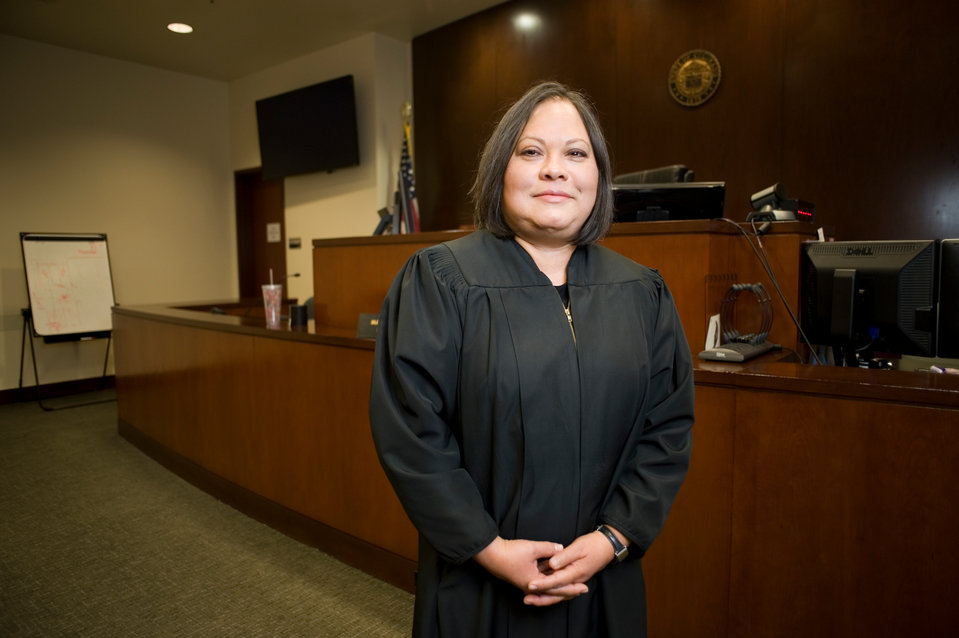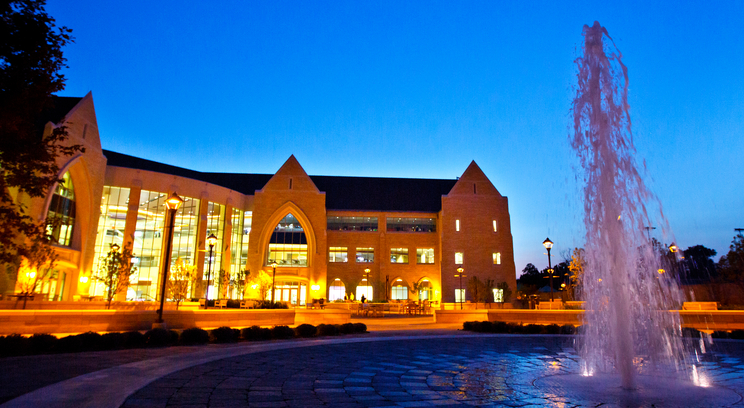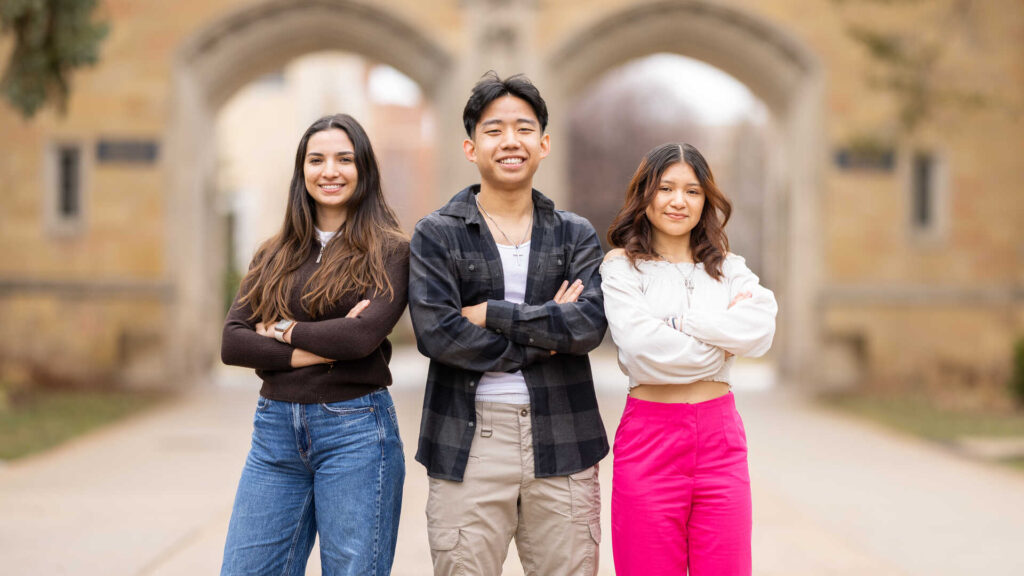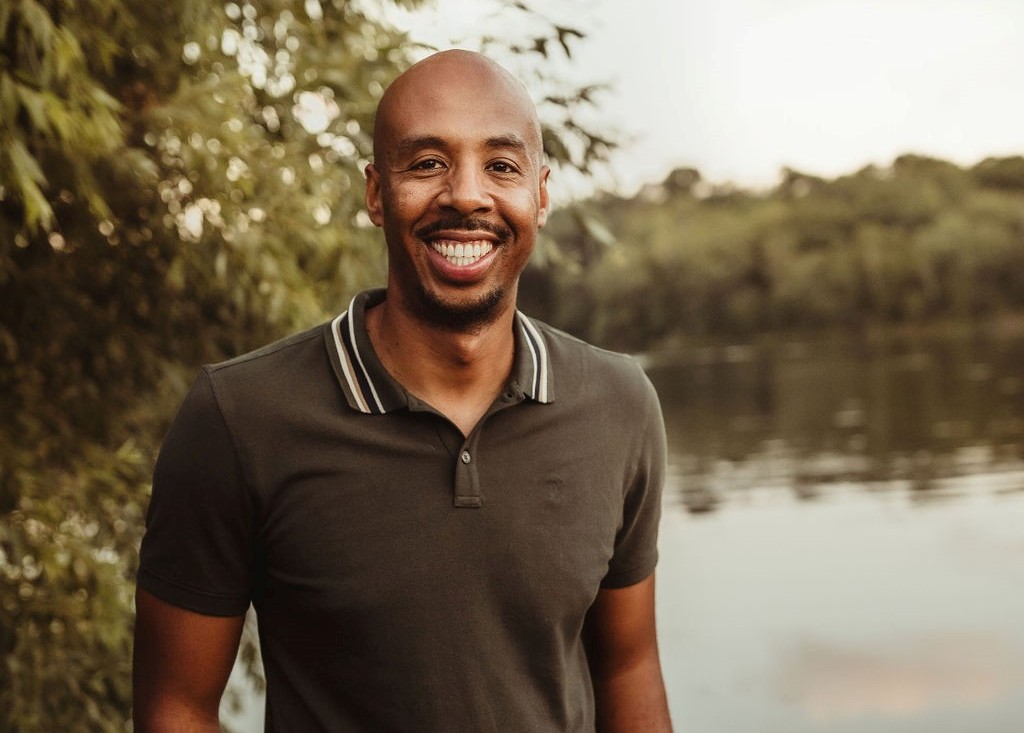It’s 3:02 p.m. on a Friday and Mariana Vielma ’05 J.D. is losing her voice.
It’s not exactly ideal: A full afternoon docket still awaits the Adams County, Colorado, judicial officer. Every weekday, dozens of people enter her courtroom to start the misdemeanor process, for bond-advisements, probable cause affidavits, or advisement on arraignment. The traffic means a busy schedule for the woman on the bench, but more importantly, it means a stream of opportunities to help people.
Even with stubborn vocal cords, Judge Vielma wouldn’t have it any other way.
“I love talking to people in my community, and that I see so many every day,” she said.
It’s no accident Vielma emphasizes the notion of community: The Colorado native is only the fifth Latina woman appointed to the bench in Adams County, where more than 21% of the population is Hispanic or Latino.
“I wanted people to see someone who looked like them,” she said of her path toward becoming a magistrate. “If someone comes in speaking Spanish, I can greet them. I want them to know they will be heard, literally. I want them to see someone from their community, who looks like them and understands their background and experiences in a way other judicial officers can’t.”
Vielma acknowledges that every judge’s path to the bench is different, potentially filled with obstacles many others will never understand. Her path, though, is rare, if not unique, and has helped shape someone who, as School of Law Professor Virgil Wiebe said, “has a spirit of joy and service at her core.”
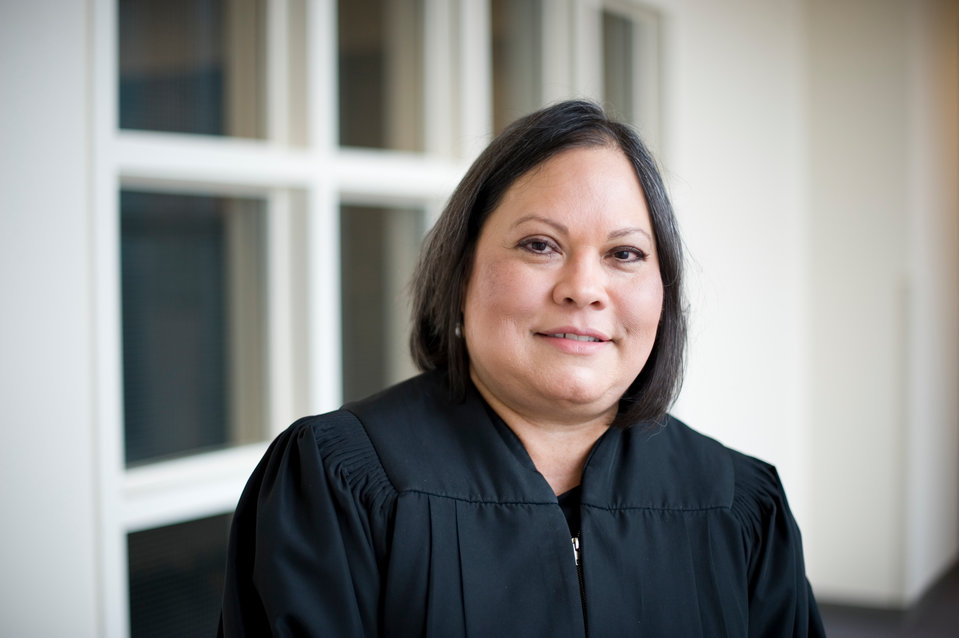
Judge Mariana Vielma '05 J.D. Photo credit: Brooks Canaday
A Nontraditional Path
Born in Denver, Vielma’s family members were migrant workers. When she was 16, her parents returned to their native Mexico to work; she joined them a few months later and lived there for two years, learning the language all the while. At 19, she returned to the U.S. with her family and worked in Idaho on potato farms.
“I came back with such an appreciation for so much we take for granted here in the United States,” she said. “I had lived in another country without so many of the protections we have here.”
Despite the hold all the moving and working put on her studies, Vielma earned her GED diploma after returning to the U.S., then earned an associate degree in Idaho. A growing interest in the law led her to work as a paralegal for seven years as she earned her undergraduate degree in psychology and management in 2001 from the University of Texas at El Paso.
As she worked with different attorneys and saw their approaches to various situations, she began to form her own understanding of how people should – and shouldn’t – be treated.
“Just because you can do something one way doesn’t mean you should. You need to take into consideration each person,” she said. “The way you choose to do something makes a difference, and you have a choice. You should always ask what is right and do the right thing. … You need to not take that discretion lightly in knowing you have someone’s life at stake.”
Even as her past and current experiences helped shape those views, a serendipitous intervention shortly after graduation opened up a new path: A St. Thomas School of Law viewbook, addressed to someone else, ended up in her mailbox.
“I remember sitting in the post office parking lot and reading the book cover to cover, and saying, ‘I’m going to go to law school at St. Thomas,’” she said. “I could envision myself in the immigration clinic. … I could envision myself aligning with the school’s mission, its focus. It was the place for me.”
Forming a Vocation
That feeling proved absolutely correct as – over her three years at St. Thomas Law – Vielma and St. Thomas helped one another grow. As a 34-year-old first-year, Vielma brought with her a completely different experience than most students.
“When we have people who have that kind of grounding in dealing with other people’s lives and the complications and traumas of people’s lives, to bring that experience into the law school and clinic is phenomenal for everyone involved,” said Wiebe, professor and director of the legal clinics, including the Immigration Appellate Clinic in which Vielma worked for three semesters. “She was such a dependable, reliable, enthusiastic and joy-filled student. A very determined advocate.”
Throughout her work and courses, Vielma said it was important to be in a community that supported her own emphasis on faith and service and helped nurture it.
“Each of my professors were individuals who didn’t just talk about the St. Thomas Law mission statement. They each demonstrated their commitment to integrating faith and reason in the search for truth through a focus on morality and social justice,” Vielma said. “Being able to freely incorporate my faith in the classroom and my clinical practice allowed me to remain true to myself, be my authentic self, and develop not only as a lawyer but as a whole person.”
With the immigration clinic, Vielma formed her vocation of serving others through law.
“We are here to serve, not to be served,” she said. “We have to be willing to humble ourselves in service to others, and in allowing others to help us when we need it, in order to be effective in our duties as lawyers.”
She referred to the parable of Jesus washing the disciples’ feet and Jesus having his feet washed in public by an unrelated woman. Vielma and several classmates gave Wiebe a small statue of the image of Jesus washing Peter’s feet.
“The notion of serving others, being willing to associate with the marginalized, those sorts of [passages] from the Scriptures inspire us to put that into day-to-day practice,” Wiebe said.
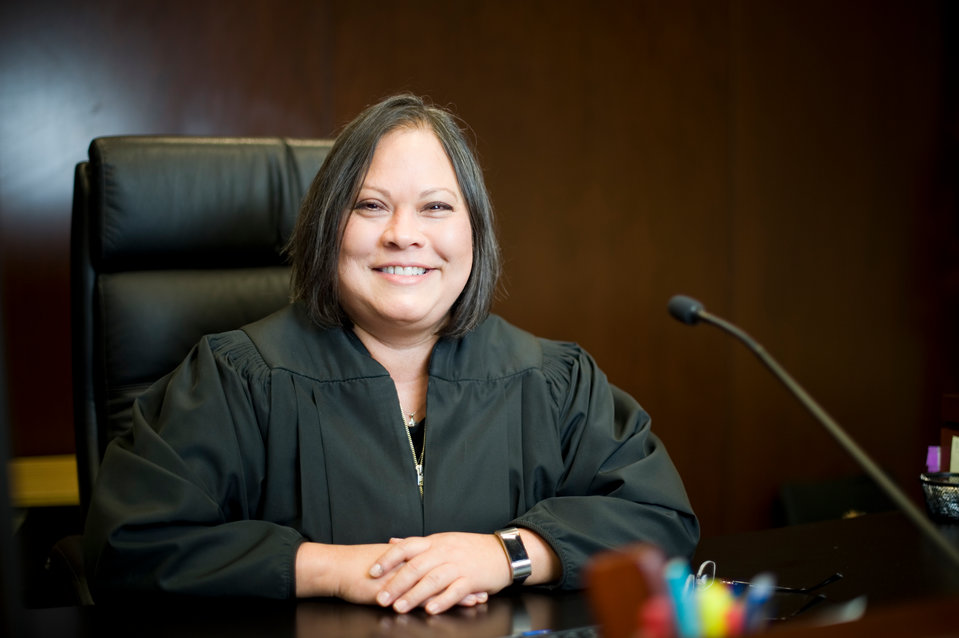
Portrait of School of Law graduate Judge Mariana Vielma '05. Vielma was recently named a Judge in Adams County, Colorado. Photo credit: Brooks Canaday
Back Home
Vielma has sought to carry out that notion throughout her career.
“I’ve really felt passionate about access to justice, equal access for the poor and self-represented litigants, and with juvenile justice,” Vielma said. “I feel [juveniles] should be treated differently. It’s an area that’s so overlooked by a lot of people.”
Vielma’s passion has manifested itself in several efforts beyond her “day job,” as she has developed into a true leader in the Colorado legal community, promoting access to justice for all citizens and developing young lawyers. She helped launch a mental health and substance abuse court for juveniles, helped begin a pilot program for attorney mentoring and joined the Colorado Bar Association’s leadership training program.
She served six years in the district attorney’s office as a juvenile and adult prosecutor, and in 2013 transferred to the Adams County Attorney’s Office, working in child support, child welfare and mental health. She focused on dependency and neglect cases and supporting families, developing her goal of working toward the bench.
“As I interacted with different segments of our community, and helped identify processes and improvements, I was able to effectuate positive change while still learning different areas of law to better prepare me to be a judicial officer,” Vielma said.
Her desire to become a judge became stronger the more time she spent in the courtroom and with her local community.
“Judicial officers are the face of the judicial branch people interact with every day,” she said. “We don’t have enough judicial officers of color, but we have a diverse population coming in every day. In the last several years I had started to hear stories of people who were scared to come to court. No one should be afraid to come to the courthouse; it’s theirs too.”
Vielma knew she could do something about it.
“I could be that change,” she said.
Vielma’s efforts culminated in July 2018 as she was sworn in as a magistrate, officially welcoming her to the bench and giving her occasion to reflect on an incredible journey.
“When I think about the path and all I’ve been through, had to overcome, I think about all the people who have been through it with me,” she said. “I could not have done it without a solid faith foundation. Every day I think, ‘Wow, do I really get to do this?’ It’s amazing. I’m so grateful. I was thinking about what it means to be a judicial officer and I don’t take that lightly. … When I think there are only a certain number of female judges in Colorado, the fact I’ve been called and blessed to do it, I don’t take that lightly. I’m so grateful to get to do it every day.”
